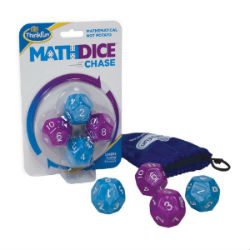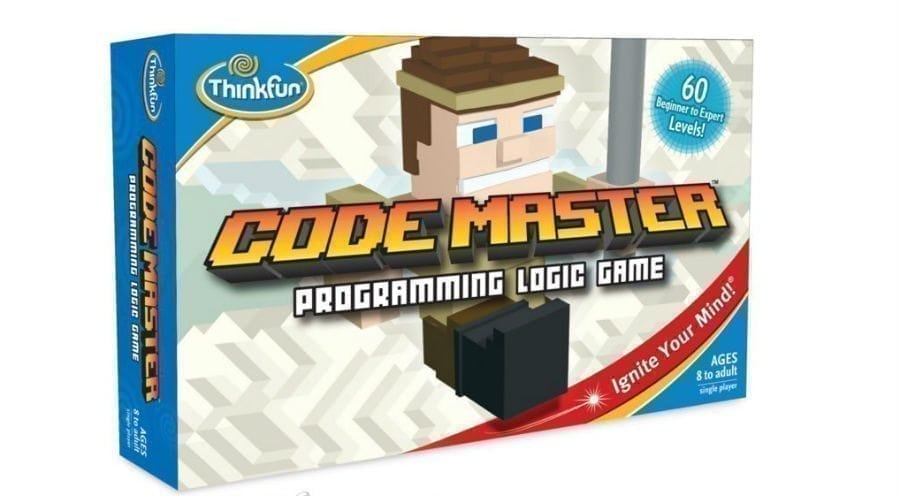As President and Co-Founder of the educational game company ThinkFun, Bill Ritchie has his finger on the pulse of early STEM education. In this interview, we chat with this innovator to discuss how turning education into a game is not only more beneficial, but more natural.
I&T Today: Tell us about the creative process in ThinkFun. How do you devise games that are going to engage the learning process at a young age?
Bill Ritchie: When my wife and I were in our late 20s, working at a real estate finance company, we realized we wanted to be doing something different.
We said, “What the hell are we going to do with our lives to make them more fun and more rewarding?” And we ended up saying, “Let’s create the kind of puzzles that my father’s colleague used to make as one of his hobbies that expressed the thinking he would do as an engineer and computer scientist.” He came up with these wonderful little puzzles. We said, “Look, there’s nobody in the market who is focusing on trying to bring in the best ideas from these really brilliant people who are out there in the world to actual simple games that kids can get their hands on. Let us make that the vision and the mission for our company.”

We started around that idea. And, of course, we didn’t know what we were doing. We’d never been in the toy industry and it was kind of a lofty goal, but I was pretty good at talking to really smart people and it just seemed like it would be a fun thing to do.
So we started going down that path, and fairly soon there were these groups of people who were starting to gather together. Martin Gardner was a lightning rod…He was the mathematical games correspondent for Scientific American for 25 years. His first column was on the hexaflexagon, which one of the inventors of was Richard Feynman as a grad student back at Princeton. He discovered him and wrote about him…There were these communities of people who were starting to gather in the ‘90s around these crazy, wild recreational mathematicians. Fairly early on I started associating with these super-smart people. Our intentional was to find them and come up with games based on them. We got ourselves into that community. We got ourselves thinking along those lines. For me, a dream come true job was to have the ability to dabble with cool logic puzzles and games and things like that.
About 2000, 2003, my two sons were in middle school. I was the on-call dad to come in and do all of the math games in the private school. I got a chance to play with these kids in the laboratory of junior high and started realizing one thing I wanted to do more than simply crank out games every year (how does one have a higher purpose than that?)—So I started thinking, “Is it possible to actually create games that have genuine learning and impact?”
And there were a number of things happening in the local area, we were being invited to local schools. These visionary teachers were coming up with ideas. There was one strategies lab that used games and talked about comparing and contrasting and what are the strategies to help kids’ minds? Talking about metacognition and how games could be used to help.

In the late 2000s, I sort of dedicated this strain of our company to try to build out learning games. We went into the education market. We spent a couple of years going to the National Council of Teachers of Mathematics and the National Association for Gifted Children conferences and being in the exhibit halls. We had this program to sell problem-solving games, or games that would teach problem-solving and other critical thinking skills. That program bombed. It was the middle of the Bush administration with No Child Left Behind and nobody really wanted hear about soft thinking skills. Frankly, even though the games we had were pretty great, there’s a distinction between a really good logic game (like, say, a Rush Hour game… The best logic puzzle of all time).
I&T Today: Tell us more about how these games work.
Bill Ritchie: Games like Rush Hour are incredible. They’re great for your brain. They’re great for exercising. They don’t actually teach you a thing where you can say as a discipline, “We’re teaching you this.” It’s a little soft for that, and so I’ve been working for years now to say, “How can we really tighten it up and get it?” …There’s another sort of next level of game that is more focused and more directly goes after deliberate, intentional learning skills. I’ve been pioneering how to get to that. How do you get something that achieves that in a way that the same policy makers and teachers who scoffed at our problem-solving as being too soft will come back and say, ‘Oh my God. That’s really great.’ And at the same time the kids go, “We really want this.” We’ve been working on this…certain kind of game. You have to address the challenges of being more intentional and programmatic. There’s just some subtle changes you have to do. This is what I’ve been working on.
One of our games is Math Dice…It’s a very simple game that’s based around rolling dice and teaching kids times tables and how to use exponents. It’s five dice and it costs $6. It’s as simple as can be, but it turns out to be this incredibly powerful little game that kids love to play. It’s really dynamic…math suddenly becomes exciting and fun. It’s one of our top sellers. It’s been in Target, it’s been in Toys-R-Us. It’s a commercially really strong product; moms keep buying it because it’s so much fun.
For 13 years now in Arlington County, Virginia we’ve run an annual training program and tournament for all 23 schools in Arlington County for the fifth graders. And then we have a big Saturday morning competition where they all get together and it’s this incredible, fun festival where they all get together and play math…It’s a pretty dramatic thing…What we’ve been doing the last six months or so is turning it into an online program. We’re going to make it be the centerpiece of a whole online program we’ve designed called Brain Lab, which is designed at getting at these thinking skills I’ve been talking about. When you bring it online, you can manipulate the challenges and serve up exactly the kind of challenge you want. For example, I just did a summer school program with rising fifth graders who aren’t ready for exponents yet. We did a whole program around order of operations and what that means is that, when they play the game, every equation that comes up…we can make it so you have to move the parentheses for every challenge, or every challenge has a plus and a minus and you have to decide which one to use. Because we’ve structured it very specifically, you are going to be forced to move the parentheses so it works the way you want it. The learning of the order of operations becomes simply a rule that you have to pick up and do in order to get better at the game. “What do I need to do? Okay, got it.” It’s internalized and you’re just on it because you want it to get good as opposed to some strange rule.
You don’t ask, “Why am I learning this?” about a game rule. You go, “Okay, let’s play.”
For more information about ThinkFun’s mission, please see ThinkFun.com
This post was updated July 27, 2017










